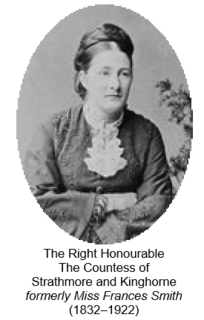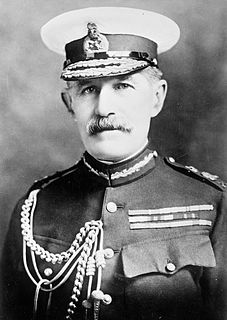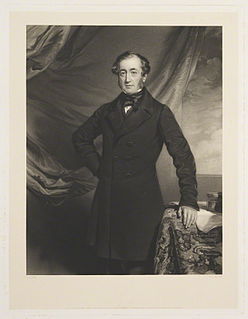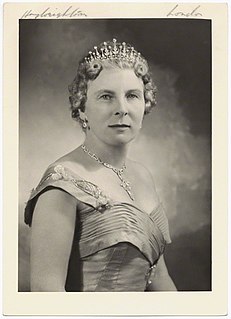 W
WColonel Abel Henry Smith was a British Conservative Party politician and an English landowner of the Smith banking family.
 W
WAbel Smith of Wilford House in the parish of Wilford, near Nottingham, England, was one of the leading bankers of his time and served thrice as a Member of Parliament.
 W
WAbel Smith III of Wilford House in the parish of Wilford, near Nottingham, England, was a British banker and politician who sat briefly in the House of Commons from 1778 to 1779.
 W
WAbel Smith was a longtime British Member of Parliament.
 W
WAbel Smith JP was an English landowner of the Smith banking family and Conservative politician.
 W
WMajor Arthur Algernon Dorrien-Smith was Lord Proprietor of the Isles of Scilly from 1918 to 1920.
 W
WAdmiral Sir Aubrey Clare Hugh Smith KCVO KBE CB was a Royal Navy officer who saw active service in the First World War and the Greco-Turkish War. In the mid 1920s he was Naval Representative to the League of Nations.
 W
WAugustus John Smith was Lord Proprietor of the Isles of Scilly for over thirty years, and was largely responsible for the economy of the islands as it is today.
 W
WBaron Bicester, of Tusmore in the County of Oxford, is a title in the Peerage of the United Kingdom. It was created on 29 June 1938 for the banker Vivian Smith. As of 2018 the title is held by his great-grandson, the fifth Baron, who succeeded his first cousin once removed in 2016.
 W
WBaron Carrington is a title that has been created three times, once in the Peerage of England, once in the Peerage of Ireland and once in the Peerage of Great Britain. The first creation came in the Peerage of England in 1643 in favour of Sir Charles Smyth. Only a few days later he was created Viscount Carrington in the Peerage of Ireland. For more information, see this title.
 W
WJulian Pauncefote, 1st Baron Pauncefote, known as Sir Julian Pauncefote between 1874 and 1899, was a British barrister, judge and diplomat. He was Permanent Under-Secretary of State for Foreign Affairs between 1882 and 1889 when he was appointed Envoy Extraordinary and Minister Plenipotentiary to the United States, an office that was upgraded to that of Ambassador to the United States in 1893. Elevated to the peerage as Baron Pauncefote in 1899, he died in office in 1902.
 W
WBrian Abel-Smith was a British economist and expert adviser and one of the most influential figures of the twentieth century in shaping health and social welfare. In Britain, his research for the Guillebaud committee in 1956 proved that the NHS provided extremely good value for money and deserved more investment. From the 1960s he was one of a new breed of special advisers to Labour government ministers – helping Richard Crossman, Barbara Castle and David Ennals to reconfigure the NHS, set up Resource Allocation Working Party, and the Black Inquiry into Health Inequalities. Internationally, he steered the development of health services in over 50 countries. He was a key WHO and EEC adviser, intimately involved in setting the agenda for global campaigns such as Health for All by the year 2000.
 W
WThe Smith, later Bromley, later Pauncefote-Bromley, later Bromley-Wilson, later Bromley Baronetcy, of East Stoke in the County of Nottingham, is a title in the Baronetage of Great Britain. It was created on 31 October 1757 for the banker George Smith, High Sheriff of Nottinghamshire from 1757 to 1759. He was the eldest son of Abel Smith I (1686–1756) of Nottingham, the 2nd son of Thomas Smith I (1631–1699), the founder of Smith's Bank in Nottingham. His younger brothers included: Abel Smith II (1717–1788) and John Smith, ancestor of Julian Pauncefote, 1st Baron Pauncefote.
 W
WBaron Carrington is a title that has been created three times, once in the Peerage of England, once in the Peerage of Ireland and once in the Peerage of Great Britain. The first creation came in the Peerage of England in 1643 in favour of Sir Charles Smyth. Only a few days later he was created Viscount Carrington in the Peerage of Ireland. For more information, see this title.
 W
WVice-Admiral Sir Edward Michael Conolly Abel Smith, was a Royal Navy officer who served during the First and Second World Wars.
 W
WFrances Dora Bowes-Lyon, Countess of Strathmore and Kinghorne was a British noblewoman. She was the paternal grandmother of Queen Elizabeth The Queen Mother, and thus a great-grandmother of Queen Elizabeth II.
 W
WFrederic Chatfield Smith was head of Smith's Bank in Nottingham and a British Conservative Party politician.
 W
WGeorge Smith was a British Member of Parliament (MP), banker and director of the East India Company.
 W
WSir George Smith, 1st Baronet (1714-1769) of Smith House, Angel Row, Nottingham and of Stoke Hall in the parish of East Stoke in Nottinghamshire, was a member of the Smith family of bankers, who established Smith's Bank in Nottingham in 1658. He was created a baronet "of East Stoke in the County of Nottingham", a title in the Baronetage of Great Britain, on 31 October 1757.
 W
WGeorge Robert Smith was an English banker and Whig politician. His great-grandfather was Thomas Smith, founder of Smith's Bank; his father George Smith (1765–1836) was a director of the East India Company.
 W
WSir Henry Abel Smith, was a British Army officer who served as Governor of Queensland, Australia. He married Lady May Cambridge, a niece of King George V and Queen Mary.
 W
WGeneral Sir Horace Lockwood Smith-Dorrien, was a British Army General. One of the few British survivors of the Battle of Isandlwana as a young officer, he also distinguished himself in the Second Boer War.
 W
WHugh Colin Smith was an English banker who was Governor of the Bank of England from 1897–99.
 W
WJohn Abel Smith was a British Member of Parliament (MP) for Chichester and Midhurst.
 W
WJohn Smith was a British politician who sat in the House of Commons from 1806 to 1835 and a banker.
 W
WJulian Pauncefote, 1st Baron Pauncefote, known as Sir Julian Pauncefote between 1874 and 1899, was a British barrister, judge and diplomat. He was Permanent Under-Secretary of State for Foreign Affairs between 1882 and 1889 when he was appointed Envoy Extraordinary and Minister Plenipotentiary to the United States, an office that was upgraded to that of Ambassador to the United States in 1893. Elevated to the peerage as Baron Pauncefote in 1899, he died in office in 1902.
 W
WBaron Carrington is a title that has been created three times, once in the Peerage of England, once in the Peerage of Ireland and once in the Peerage of Great Britain. The first creation came in the Peerage of England in 1643 in favour of Sir Charles Smyth. Only a few days later he was created Viscount Carrington in the Peerage of Ireland. For more information, see this title.
 W
WLady May Helen Emma Abel Smith was a relative of the British royal family. She was a great-granddaughter of Queen Victoria and a niece of Queen Mary. She led a private life in England. From 1958 until 1966, she lived in Brisbane, while her husband, Sir Henry Abel Smith, served as the governor of Queensland.
 W
WPeter Alexander Rupert Carington, 6th Baron Carrington, Baron Carington of Upton, was a British Conservative politician and hereditary peer who served as defence secretary from 1970 to 1974, foreign secretary from 1979 to 1982, chairman of British General Electric Company from 1983 to 1984, and secretary general of NATO from 1984 to 1988. In the first government of Margaret Thatcher, he played a major role in negotiating the Lancaster House Agreement that ended the racial conflict in Rhodesia and enabled the creation of Zimbabwe.
 W
WRichard Francis Abel Smith was a British Army officer.
 W
WCharles Robert Wynn-Carington, 1st Marquess of Lincolnshire, known as the Lord Carrington from 1868 to 1895, and as the Earl Carrington from 1895 to 1912, was a British Liberal politician and aristocrat. He was Governor of New South Wales from 1885 to 1890.
 W
WRobert John Carrington, 2nd Baron Carrington,, was a politician and a baron in the Peerage of Great Britain. He was the son of Robert Smith, 1st Baron Carrington, and Anne Boldero-Barnard. He adopted the name "Carrington" in 1839.
 W
WRobert Smith, 1st Baron Carrington, was a British banker and politician who sat in the House of Commons from 1779 to 1797 when he was raised to the peerage.
 W
WKate Elizabeth Winslet is an English actress. Often regarded by film critics as one of the "preeminent actresses of her generation", she is known for her work in independent films, particularly period dramas, and usually portrays headstrong, complicated women. She is the recipient of numerous accolades, including an Academy Award, three British Academy Film Awards, three Screen Actors Guild Awards, four Golden Globe Awards, two Primetime Emmy Awards, and a Grammy Award.
 W
WRupert Francis John Carington, 7th Baron Carrington,, is a British businessman and crossbench member of the House of Lords who succeeded his father as the 7th Baron Carrington on 9 July 2018.
 W
WSamuel George Smith was an English banker and Conservative Party politician who sat in the House of Commons from 1859 to 1880.
 W
WSamuel Smith was a British Tory Member of Parliament and banker.
 W
WThe Smith family is an English aristocratic and banking family founded by Thomas Smith (1631–1699), the founder of Smith's Bank of Nottingham. Its members include the Marquess of Lincolnshire (extinct), the Viscount Wendover (extinct), the Barons Carrington, the Baron Pauncefote (extinct), the Barons Bicester, the Bromley baronets and many Members of Parliament. Originally named Smith, the branch of the Barons Carrington assumed the surname Carington, the branch of the Bromley baronets the surname Bromley and the branch of the Baron Pauncefote the surname Pauncefote.
 W
WSmith's Bank was a series of English banking partnerships in London and the provinces, all controlled by the Smith family that operated between 1658 and 1918. Although Smith's Bank was never a single entity, the first bank was established in Nottingham by Thomas Smith; often dated to 1658, it is believed to be the first bank to be formed outside London.
 W
WLieutenant Thomas Algernon Smith-Dorrien-Smith was Lord Proprietor of the Isles of Scilly from 1872 until his death in 1918.
 W
WSir William Henry Peregrine Carington was a British soldier, courtier and Liberal politician who sat in the House of Commons from 1868 to 1883